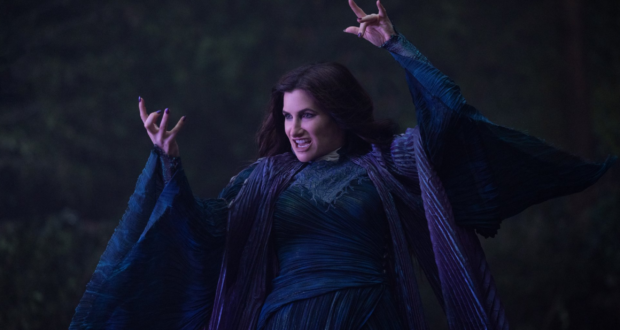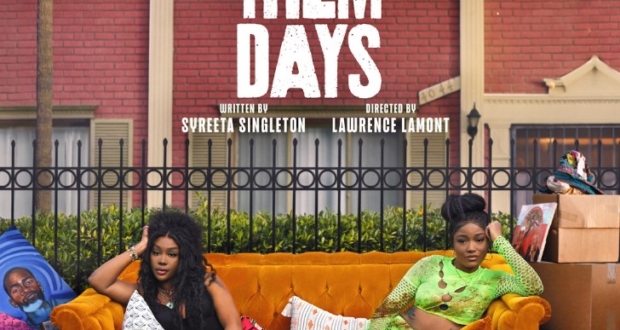No word yet on when the writers will actually get back to work, but the leadership of the WGA have issued a release to their members announcing a tentative agreement with the Producers. On first reading, it has panned out pretty much the way I (and most of us) thought it would. So why these two sides couldn’t just get to this deal 2 months ago is a testament to how stuborn human beings can me while other people suffer. Oh well… at least it appears to be done now.
Here is the letter from the WGA. Obviously this letter is one sided and biased in its spin, but so will the Producers letter once it comes out (I’m keeping an eye on the AMPTP site for an update there):
To Our Fellow Members,
We have a tentative deal.
It is an agreement that protects a future in which the Internet becomes the primary means of both content creation and delivery. It creates formulas for revenue-based residuals in new media, provides access to deals and financial data to help us evaluate and enforce those formulas, and establishes the principle that, “When they get paid, we get paid.”
Specific terms of the agreement are described in the summary on our website and will be further discussed at our Saturday membership meetings on both coasts. At those meetings we will also discuss how we will proceed regarding ratification of this agreement and lifting the restraining order that ends the strike.
Less than six months ago, the AMPTP wanted to enact profit-based residuals, defer all Internet compensation in favor of a study, forever eliminate “distributor’s gross” valuations, and enforce 39 pages of rollbacks to compensation, pension and health benefits, reacquisition, and separated rights. Today, thanks to three months of physical resolve, determination, and perseverance, we have a contract that includes WGA jurisdiction and separated rights in new media, residuals for Internet reuse, enforcement and auditing tools, expansion of fair market value and distributor’s gross language, improvements to other traditional elements of the MBA, and no rollbacks.
Over these three difficult months, we shut down production of nearly all scripted content in TV and film and had a serious impact on the business of our employers in ways they did not expect and were hard pressed to deflect. Nevertheless, an ongoing struggle against seven, multinational media conglomerates, no matter how successful, is exhausting, taking an enormous personal toll on our members and countless others. As such, we believe that continuing to strike now will not bring sufficient gains to outweigh the potential risks and that the time has come to accept this contract and settle the strike.
Much has been achieved, and while this agreement is neither perfect nor perhaps all that we deserve for the countless hours of hard work and sacrifice, our strike has been a success. We activated, engaged, and involved the membership of our Guilds with a solidarity that has never before occurred. We developed a captains system and a communications structure that used the Internet to build bonds within our membership and beyond. We earned the backing of other unions and their members worldwide, the respect of elected leaders and politicians throughout the nation, and the overwhelming support of fans and the general public. Our thanks to all of them, and to the staffs at both Guilds who have worked so long and patiently to help us all.
There is much yet to be done and we intend to use all the techniques and relationships we’ve developed in this strike to make it happen. We must support our brothers and sisters in SAG who, as their contract expires in less than five months, will be facing many of the same challenges we have just endured. We must further pursue new relationships we have established in Washington and in state and local governments so that we can maintain leverage against the consolidated multinational conglomerates with whom we bargain. We must be vigilant in monitoring the deals that are made in new media so that in the years ahead we can enforce and expand our contract. We must fight to get decent working conditions and benefits for writers of reality TV, animation, and any other genre in which writers do not have a WGA contract.
Most important, however, is to continue to use the new collective power we have generated for our collective benefit. More than ever, now and beyond, we are all in this together.
Best,
Michael Winship
President
Writers Guild of America, East
Patric M. Verrone
President
Writers Guild of America, West
And here is a summary of the tentative deal:
(Click Here to see the terms of the deal)
Term of Agreement
From resumption of work through May 1, 2011.
Minimums
Minimum rates generally increase 3.5% each year. The exceptions are: network prime time rates and daytime serial script fees increase 3.0% each period; program fees and the upset price increase once by 3% in the second year; and clip fees increase once by 5% in the third year.
Writing for Made-for New Media
Coverage: The WGA is recognized as the exclusive bargaining representative for writing for new media (such as Internet or cellular technology). Writing for new media is covered by the MBA if:
(1) it is written by a “professional writer” (anyone with a single TV or screen credit, 13 weeks of employment in TV, film or radio, a professionally produced stage play credit or a published novel) or
(2) the program is derivative of an MBA-covered program or
(3) if the budget is above any of three thresholds: $15,000 per minute; $300,000 per program; or $500,000 per series order. If initially not covered due to the projected
budget but later costs exceed a threshold, the program/series is covered retroactively.
Compensation: If a new media program is derivative of an MBA-covered program, minimums for initial compensation apply. The minimum for derivative dramatic programs is $618 for programs up to two minutes, plus $309 for each additional minute. The minimum for derivative comedy-variety and daytime serials is $360 for programs up to two minutes, plus $180 for each additional minute. The minimum for all other types of derivative programs is $309 for programs up to two minutes, plus $155 for each additional minute. Regardless of the length of the program initial compensation can be no less than the two minute rate. For original programs
initial compensation is negotiable.
Pension and Health Insurance: MBA pension and health provisions apply to all covered writing for new media programs.
Credits: The Guild shall determine credits on all covered new media programs. Credits must appear on-screen (or on a link to the program) if anyone else receives such credit.
Television Reuse: If a covered new media program is reused in traditional media, the usual residuals for a television program apply with minor modifications.
Separated Rights: Creators of original new media material are protected as follows:
(1) If you create an Internet program that becomes a TV series or feature film which you write, traditional separated rights apply.
(2) If you write original material for an Internet program and the Company wants to use it for a TV series or feature film to be written by someone else, the Company must purchase rights from you. The Company may acquire the rights at any time, but separate compensation must be paid. If you want to sell those rights to another studio, the Company has a right of first refusal.
(3) If you create an Internet program that is the equivalent of a traditional TV series (over $25,000 per minute and 20 minutes in length) you are entitled to the same rights as in (2) above, plus sequel payments for each Internet episode based on your program.
Internet Residuals: Initial compensation covers writing services and 13 weeks of availability in new media when the viewer does not pay, and 26 weeks of availability in new media when the viewer pays. After those periods, certain residuals are payable: (i) if a new media program derived from an MBA-covered program or an original new media program with a budget higher than $25,000 per minute is reused in new media, the new media reuse provisions described below apply, except that electronic sell-through is paid at 1.2% of distributor’s gross receipts; and (ii) for original new media programs, the residual for ad-supported streaming is negotiable, while reuse where the viewer pays is compensated at 1.2% of distributor’s gross receipts.
Other Guild Provisions: A number of standard guild provisions apply to all covered new media programs: Guild shop (writers must join the WGA), no-strike/no-lockout, grievance and arbitration, and timely payment.
Reuse in New Media
Distributor’s Gross Receipts: All revenue-based residuals in new media employ a definition of “distributor’s gross” which eliminates the accounting uncertainty inherent in the concept of “producer’s gross” as found in the home video/DVD formula.
Download Rentals: If the viewer pays for limited new media access to a program, residuals are paid at the rate of 1.2% of distributor’s gross receipts.
Download Sales (Electronic Sell-Through): If the viewer pays for permanent use of the program, residuals are paid at 0.36% of distributor’s gross receipts for the first 100,000 downloads of a television program and the first 50,000 downloads of a feature. After that, residuals are paid at 0.7% of distributor’s gross receipts for television programs and 0.65% for feature films.
Theatrical Ad-Supported Streaming: Ad-supported streaming of feature films produced after July 1, 1971 is payable at 1.2% of distributor’s gross receipts.
Television Ad-Supported Streaming (Library): Ad-supported streaming of television programs produced after 1977 (and a small number produced prior to 1977) are payable at 2% of distributor’s gross receipts.
Television Ad-Supported Streaming (New Programs): Ad-supported streaming of television programs is payable at 2% of distributor’s gross receipts one year from the end of an initial streaming window.
Initial Streaming Window: There is an initial window of 17 days (24 days for episodes of the first season of a series, one-off television programs, and MOWs) with no residual. This window must include or occur contiguous to the initial television exhibition.
Residual Payment (Network Prime Time): In the first and second years of this contract, after the initial window, for network prime time television programs, a fixed residual of 3% of the residual base (“applicable minimum”) is paid for each of up to two 26-week periods. For an hour program, this fee is $654 per period in the first year of the contract; $677 per period in the second year. For a half-hour the figures are $360 and $373. In the third year of this contract, the 2% of distributor’s gross formula is applied immediately after the initial streaming window. The contract sets an imputed value for up to 26 weeks of such distributor’s gross at $40,000 for an hour program and $20,000 for a half hour program. So, for the third year the formula pays a residual of $800 for an hour program and $400 for a half hour program for each potential 26-week period in the year after the initial streaming window. If the Network’s exclusivity expires prior to one year after the end of the initial window, the 2% of distributor’s gross receipts begins without the imputed value. In the case of a 26-week period being truncated by the end of the year after the end of the initial streaming window, the payment is prorated. Residual Payment (All Other Programs): After the initial streaming window, a fixed residual of 3% of the residual base (the “applicable minimum”) is paid for each of up to two 26-week periods in the first two years of this contract. In the third year of this contract, the payment rate rises to 3.5% of the residual base.
Fair Market Value: New media residuals based on transactions between related parties are subject to a test of reasonableness when compared to transactions between unrelated parties.
Access to Information: The companies agree to provide the Guild with access to new media deals and distribution statements, without redaction, and usage data during the term of the contract.
Clips: Clips are defined as excerpts of less than five minutes for episodic TV or ten minutes for features or long-form TV. A company can use a clip for a promotional purpose without payment. Where a clip is not promotional and the viewer does not pay, the fee for the clip in new media is paid at the rate of the lesser of $50 or the residual payable under the Reuse Sideletter for a clip under two minutes; the lesser of $150 or the residual payable the Reuse Sideletter for a clip between two and four minutes; and for a clip longer than four minutes, the residual payable under the Reuse Sideletter. Where the viewer pays, the fee for use of a clip is 1.2% of distributor’s gross receipts.
Promotion: A clip can be used without payment to promote theatrical, television or new media exhibition if the clip contains “tune-in”, rental or purchase information. No payment is due for non-commercial “viral” release of clips from a theatrical or television motion picture. Promotion does not include the use of clips if the primary purpose of the exhibition is to permit viewing of archived or aggregated clips on a new media site (e.g., dailyshow.com).
Pension and Health Fund Provisions
Health Fund: The contribution rate shall continue to be 8½% from the start of the contract through September 30, 2008. The contribution rate shall be 8% for the period of October 1, 2008 through March 31, 2009. Thereafter the rate shall return to 8½%. A sideletter resolves a pending dispute about the Health Fund contribution rate.
Pension Fund: The contribution rate remains at 6% for this contract.
Contribution Caps: For theatrical motion pictures and long-form television motion pictures, the ceiling on which Pension Plan contributions are based is increased to $225,000 ($450,000 for team of 3). For long-form television motion pictures, the ceiling on which Health Fund contributions are based is increased to $250,000 ($500,000 for a team of 3). A cap of $350,000 ($700,000 for a team of 3) is established as the ceiling on which Pension Plan and Health Fund contributions are based for daytime serial writers.
Other: The Guild and the Companies will jointly fund a study of new IRS regulations. We agreed how contributions will be paid when a writer is employed on a development deal under Article 14.E.2. and, under the same contract, is employed to perform Article 14.K. services on a series for which the writer receives additional money which is not creditable.
Other Provisions
Made-for Pay TV Residuals: The annual residual payments increase from $3,000 to $3,500 for a half-hour program and from $5,000 to $6,000 for an hour program.
Product Integration: The company will consult with the showrunner when a commercial product is to be integrated into the storyline of an episode of a dramatic series.
Showrunner Training Program: The AMPTP and Networks will increase funding for this program to: $225,000 for year 1 of the MBA; $150,000 for year 2; and $150,000 for year 3.
Television Recap Clips: The total length of clips that can be used to recap the story in a 60- minute or longer program is extended from 90 seconds to 3 minutes before requiring payment.
Tri-Guild Audit Fund: The companies renew the funding of the Tri-Guild Audit Fund.
Residuals Reporting/Electronic Data Transfer: Each company shall meet with the Guild to establish a method of transfer for electronic reporting of residuals information.
Lists of Arbitrators: Arbitrators were added to the lists by both the Guild and the companies.
Foreign Remakes: Alternative terms were agreed for foreign remakes of MBA-covered scripts.
Limited Syndication of Half-Hour Programs: A little-used sideletter specifying a discounted residual for half hour series in limited syndication was renewed.
Television Separated Rights for a Derivative Theatrical Film: The company has an opportunity to match an offer to purchase feature film rights from the separated rights holder.
Committee on Alternative Digital Broadcast Channels: The Guild agreed to participate in a committee to explore the use of alternative digital broadcast channels.





















